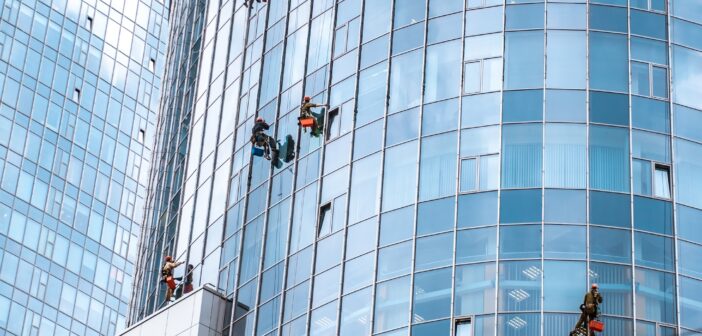Total office leasing stood at 53.8 mn. sq. ft. in Jan-Sep’24, highest ever for Jan-Sep period for 9 cities. Jul- Sep’24 quarter records highest office leasing in the same period.
Office leasing is likely to record a historic high of ~70 mn. sq. ft in CY 2024 across top 9 cities in India as per current estimates, says ‘CBRE India Office Figures Q3 2024’. The last highest office leasing was recorded in CY 2019 at 66.6 mn. sq. ft. The office demand will be driven by both global and domestic occupiers, who are expected to continue expanding their operations and consolidating their facilities to strengthen their market presence. GCCs are poised to expand significantly in India, accounting for about 35-40% of the total office leasing.
The office sector witnessed a gross absorption of 53.8 mn. sq. ft. during Jan-Sep ‘24 across nine key cities – Bengaluru, Mumbai, Delhi-NCR, Hyderabad, Chennai, Pune, Kochi, Kolkata, and Ahmedabad, recording a 19% Y-o-Y growth, marking the highest leasing activity ever for the Jan-Sep period. According to the report, a total supply of 37.5 mn. sq. ft. was recorded during the Jan- Sep’24 period.
Bengaluru led the office space absorption during the Jan-Sep’24 period, accounting for about 30% of the total leasing, followed by Delhi-NCR and Hyderabad contributing 14% each, Chennai at 13%, Mumbai and Pune, each contributing 12%. Bengaluru, Hyderabad, and Pune led the supply additions, collectively accounting for a share of 63% during the same period.
The report indicates technology companies saw the highest share and accounted for 23% of the total office leasing, followed by flexible space operators at 19%, and BFSI firms at 16%, engineering & manufacturing at 9%, both research, consulting & analytics and life sciences at 7% respectively during Jan-Sep ‘24. Additionally, domestic firms led absorption, comprising 42% of the market during Jan-Sep ‘24. Flexible space operators, technology corporates, and BFSI firms primarily drove domestic absorption during the same period.
On a quarterly basis, office leasing in Jul-Sep’24 stood at 19.0 mn sq. ft, the highest ever in the same period. Bengaluru, followed by Mumbai and Hyderabad, led the absorption, together accounting for nearly two-thirds of the space take-up during the quarter.
On a quarterly basis, technology companies held a share of 19%, driving the overall office leasing activity. This was followed by banking, financial services, and insurance (BFSI) firms (18%), flexible space operators (17%), engineering and manufacturing (E&M) companies (9%), life sciences firms (8%), and E-commerce and research, consulting, and analytics (RCA) companies at 7% each.
Development completions of approximately 15.3 million sq. ft. were witnessed in Jul-Sep ‘24, up by 14% Q-o-Q. Hyderabad, Bengaluru and Kochi drove the supply addition during the quarter with a cumulative share of about 65%. Signalling developers’ continued efforts towards sustainability, more than three-fourths of the newly completed space during the quarter was green-certified (LEED or IGBC-rated).
Anshuman Magazine, Chairman & CEO – India, South-East Asia, Middle East & Africa, CBRE, said, “India’s office market leasing is projected to remain strong in CY2024, with Q3 2024 reflecting sustained absorption. The demand is driven by global and domestic occupiers, who are expected to continue expanding their operations and consolidating their facilities to strengthen their market presence. A growing number of industries are recognising the potential of Indian talent and establishing their GCC operations.”
“India’s economic resilience amidst global uncertainties is increasingly attracting businesses seeking investment opportunities. The country’s streamlined regulations and efficient approval mechanisms continue to foster a favourable business climate. Moreover, the stable political landscape provides a conducive environment for consistent policy implementation, thereby promoting market confidence and a positive outlook,” he added.
Ram Chandnani, Managing Director, Advisory & Transaction Services, CBRE India, said, “India’s office market remains resilient, driven by a diversified demand base encompassing various sectors, cities, and regional occupiers, aiding the sector to mitigate the impact of global fluctuations on demand.
Office market is poised to expand significantly in India, driving demand for both traditional and flexible workspaces as new firms establish their global centres, and the existing firms scale up. Sectors such as life sciences, automotive, and aerospace are also looking to expand their GCC presence in the country”.
Outlook and other observations
Demand diversification: Key to India’s office growth story
India’s office market remains resilient, driven by a diversified demand base encompassing various sectors, cities, and regional occupiers, aiding the sector to mitigate the impact of global fluctuations on demand.
Cities: While Bengaluru, Hyderabad and Delhi-NCR are expected to lead absorption, demand is expanding beyond major cities. We expect cities such as Chennai and Pune to witness significant growth this year, aided by the talent pool in these cities and the availability of quality office stock.
Sectors: Broader economic growth and strategic policies are reshaping the country’s office market, expanding beyond the traditional technology sector. Although the sector will remain a key driver of office demand, its share is likely to stabilise at 25-30% of total leasing. We expect to witness a broader demand base this year, with resilient growth from BFSI firms, flexible space operators, and E&M companies.
Domicile: While global firms continue to grow in India through their GCCs, recent years have seen a notable increase in leasing by domestic firms, accounting for nearly half of the total office leasing activity since 2022. Indian companies are likely to sustain this momentum, capitalising on the robust economic growth prospects, as they expand into new locations to strengthen their operations.
GCC evolving beyond tech and BFSI
GCCs are poised to expand significantly in India, accounting for about 35-40% of the total office leasing, driving demand for both traditional and flexible workspaces as new firms establish their global centres and the existing firms scale up.
As per CBRE’s 2024 India Office Occupier survey, about 67% of the GCCs surveyed are anticipated to grow their office portfolios by more than 10% over the next two years. India’s large talent pool and cost advantages continue to enhance its attractiveness, with its tech and non-tech workforce emerging as a global asset.
Moving beyond the traditional dominance of tech and E&M and life sciences firms are increasingly expanding in India, driven by the need for digitalisation and product development. A growing number of industries are recognising the potential of Indian talent and establishing their GCC operations.
The future points to further diversification, with sectors such as life sciences, automotive, and aerospace set to expand their GCC presence in the country. To attract and retain top talent, GCCs are focusing on experiential workplaces within amenetised Grade A developments. There is a clear preference for high-quality, technology-driven environments, with large-scale campus developments becoming a strategic priority for established firms.
Surging enterprise demand propels growth in flexible workspaces
Flexible space operators have become vital in shaping modern work environments, meeting the evolving needs of businesses from start-ups and small and medium enterprises (SMEs) to GCCs and other multinational corporations.
As workplaces transform into collaborative hubs, the stock of flexible workspaces in India across the top nine cities is projected to reach 80 million sq. ft. by the end of 2024.
Over the past few years, flexible space operators have led domestic office space take-up, consistently accounting for over one-fourth of the total domestic leasing activity. Their market share in overall leasing has remained steady within the 12-15% range over the past five years, and this trend is anticipated to persist in 2024.
Strong investment-grade supply to boost shift towards future-proofed assets
The year is expected to end with a consistent supply of high-quality office spaces, and Bengaluru, Hyderabad, and Delhi-NCR are likely to remain at the forefront of new supply completions.
The increasing demand for amenetized assets is driven by occupiers’ focus on a ‘flight to quality’ as companies prioritise office spaces that help attract and retain top talent while enhancing the overall employee experience.
Occupiers are placing greater emphasis on enhancing the employee experience through various initiatives, with a strong focus on employee wellness.
The CBRE India office occupier survey highlights that wellness integration is a key aspect of redesigning employee experience. Occupiers also expect landlords to implement building and campus-level improvements, with amenities such as fitness and wellness facilities, convenient access to public transportation, outdoor green spaces, improved air quality, and a variety of F&B options to become prominent features in newly developed properties.
Developers are concentrating on building state-of-the-art, green-certified spaces with modern amenities to meet the evolving needs of businesses. With demand and supply expected to align, vacancy rates would remain stable, and moderate rental growth in premium assets is forecasted in select micro-markets across key cities.
Track2Realty is an independent media group managed by a consortium of journalists. Starting as the first e-newspaper in the Indian real estate sector in 2011, the group has today evolved as a think-tank on the sector with specialized research reports and rating & ranking. We are editorially independent and free from commercial bias and/or influenced by investors or shareholders. Our editorial team has no clash of interest in practicing high quality journalism that is free, frank & fearless.
Subscribe our YouTube Channel @ https://bit.ly/2tDugGl





